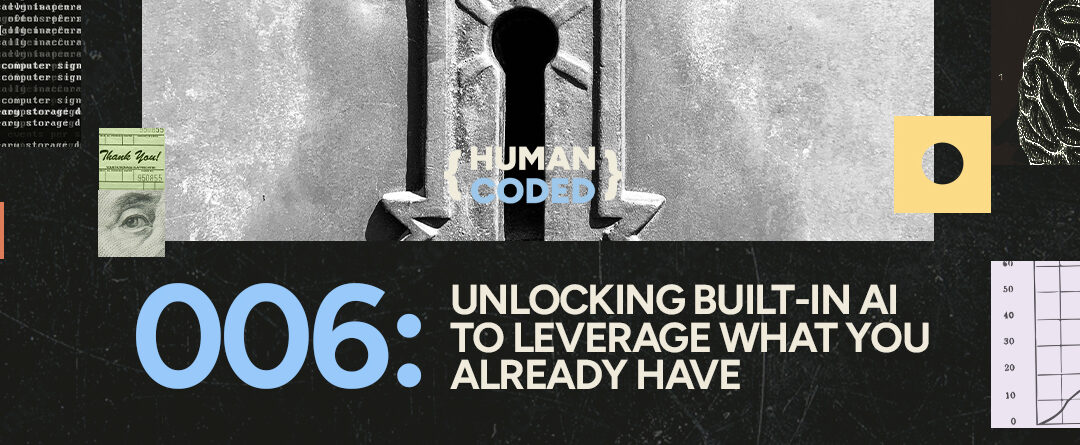Artificial intelligence (AI) is no longer a futuristic concept reserved for sci-fi movies; it’s embedded in the tools and systems businesses use every day. From predictive analytics in customer relationship management (CRM) systems to intelligent document processing, AI has become a key driver of innovation and efficiency in the workplace.
But how can organizations maximize the built-in AI capabilities they already have? Let’s explore the opportunities and practical applications of AI in core operational systems, office tools, and enterprise applications.
Understanding Built-in AI in Core Operational Systems
Core operational systems are the backbone of any business, handling processes like customer data management, fraud detection, and predictive maintenance. Many of these systems now come with AI capabilities that can transform traditional workflows.
For example, predictive analytics in operational systems can forecast customer churn or detect anomalies in industrial equipment, enabling proactive maintenance. Businesses may already have access to these features but often underutilize them. By upgrading to newer versions or activating latent AI functionalities, companies can unlock significant value without overhauling their infrastructure.
Consider an egg-packing operation in the southern hemisphere where AI revolutionized a traditionally manual process. By integrating AI-powered computer vision, the system analyzed real-time data to optimize egg grading and packing decisions. The result? Improved accuracy, reduced waste, and enhanced profitability.

AI in Office Tools: Enhancing Productivity
Thanks to AI integrations, office tools have become more intelligent. These advancements improve collaboration, automate repetitive tasks, and streamline document management.
Imagine drafting an NDA in seconds or searching vast email archives with precision. AI-powered tools like Microsoft Copilot provide real-time assistance, turning unstructured data into actionable insights. These tools enable workers to focus on creative and strategic tasks, reducing time spent on administrative burdens.
AI assistants now merge functionalities across applications—such as transforming a text document into a polished presentation. These capabilities not only enhance productivity but also encourage cross-team collaboration by seamlessly sharing and formatting information.
CRM Systems and Customer Personalization
AI’s role in CRM systems has grown dramatically, allowing businesses to personalize customer interactions at scale. From chatbots that handle initial inquiries to real-time call analysis for customer service reps, AI ensures every interaction is data-driven and contextually relevant.
- Chatbots: Modern AI-driven chatbots provide seamless support, often indistinguishable from human agents. They assist in resolving issues, upselling products, and even identifying customer trends.
- Personalized Recommendations: Retailers can analyze purchase patterns in real time to offer targeted promotions, creating a tailored shopping experience.
AI in CRM systems enhances customer satisfaction and boosts sales by predicting behaviors and suggesting the next best actions.
Enterprise Applications:
Enterprise applications like ERP (Enterprise Resource Planning), HR systems, and MES (Manufacturing Execution Systems) are leveraging AI to improve operational efficiency and decision-making.
HR and Responsible AI
AI helps HR teams analyze resumes, predict employee churn, and optimize workloads. For example, combining HR and ERP systems can provide insights into employee productivity, enabling proactive interventions to prevent burnout.
Manufacturing Execution Systems (MES)
In manufacturing, AI optimizes production through process mining and predictive analytics. These systems identify bottlenecks, improve quality control, and maximize equipment utilization.
Maximizing Built-in AI Capabilities: Key Takeaways
- Start With What You Have: Assess existing systems to identify underutilized AI features. Small upgrades or add-ons can provide significant improvements.
- Focus on Data: AI thrives on quality data. Invest in organizing and cleaning your data to maximize AI’s potential.
- Pilot and Iterate: Test new AI functionalities with a small group before scaling. Learn what works and refine your approach.
- Balance Automation and Human Creativity: Use AI to handle repetitive tasks, freeing employees to focus on strategic and innovative work.
Looking Ahead: AI’s Transformative Potential
As AI evolves from assistant tools to autonomous agents, businesses will need to adopt responsible practices. Ethical considerations around data privacy, bias, and decision-making will be paramount. By combining human creativity with AI’s analytical power, organizations can achieve a balance that drives innovation and success.
Are you ready to explore the AI capabilities within your systems? Contact our team to uncover how these tools can transform your business. Let’s turn possibilities into tangible results. your business processes.
Take your first step into AI Integration with M&S Consulting’s AI Roadmap
In today’s fast-paced business environment, innovation isn’t just an option—it’s a necessity. The rapid advancements in Artificial Intelligence (AI) are reshaping industries, offering unparalleled opportunities for those who are ready to embrace change. At M&S Consulting, we understand that navigating this transformation can be daunting, which is why we’ve created the ultimate guide to help you harness the power of AI: our AI Roadmap.
The AI Roadmap is more than just a guide; it’s your strategic partner in the journey towards AI integration. As businesses grapple with increasing competition and evolving market demands, AI stands out as a critical tool for enhancing efficiency, making informed decisions, and gaining a competitive edge. But the path to successful AI implementation is complex. Our roadmap is designed to simplify this process, offering a clear, structured approach to integrating AI into your operations.
Our comprehensive AI Roadmap covers all the essential steps you need to take to seamlessly incorporate AI into your business:
- Understanding Your Business Environment: Align AI initiatives with your business strategy, navigate regulatory requirements, and assess your existing resources.
- Defining Your AI Strategy: Evaluate your data quality, develop a robust data and analytics strategy, and prioritize AI use cases to meet your business goals.
- Identifying Machine Learning Applications: Explore various applications of AI, from classification and prediction to computer vision and generative AI.
- Leveraging Built-in AI Capabilities: Integrate AI into your core systems, office tools, and customer-facing applications to enhance productivity and efficiency.
- Defining & Implementing Your Data Platform: Establish secure data storage solutions, integrate diverse data sources, and implement strong data governance practices.
- Developing Machine Learning Applications: Train, tune, test, and refine AI models to ensure they deliver accurate and reliable results.
- Implementing Smart Automation & Workflows: Combine AI with your enterprise systems to automate tasks, optimize workflows, and manage machine learning operations.
- Communicating & Training Stakeholders: Facilitate adoption of AI tools, provide training for users, and continuously improve based on feedback.
Ready to Transform Your Business?
The journey to AI integration is a strategic endeavor that requires careful planning and expert guidance. With M&S Consulting’s AI Roadmap, you’ll have a clear, actionable plan to navigate the complexities of AI and unlock its full potential for your organization. Don’t miss out on the opportunity to stay ahead of the curve and drive your business toward future success. Fill out the form below to download our AI Roadmap and start your journey towards transformative AI integration today!
Authors



